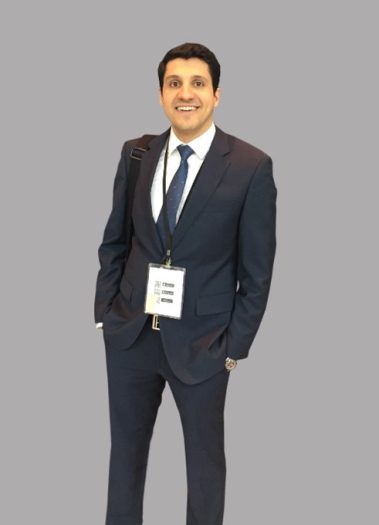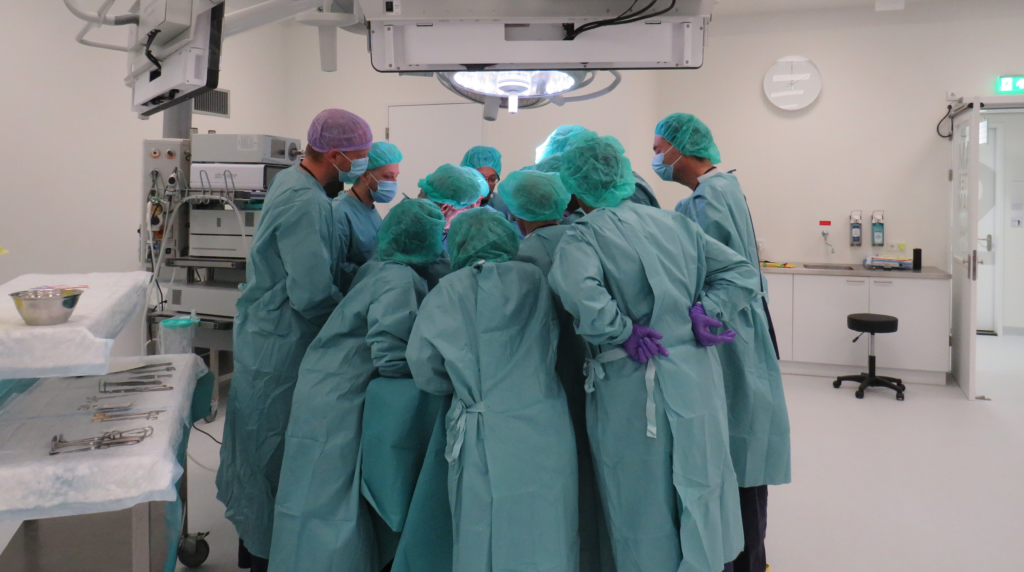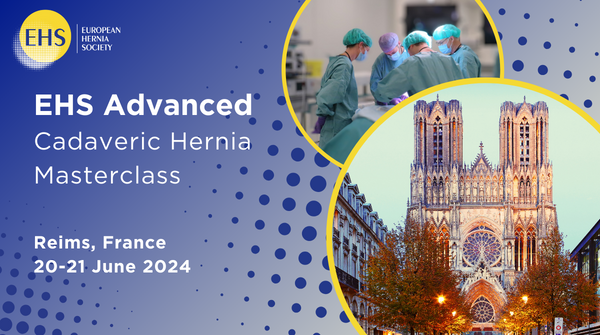Read some reflections from one of the attendees at Advanced Cadaveric Hernia course. The course was held in November 2023 in Reims.
You can keep yourself updated about future EHS Cadaver courses via the EHS events site
Name: Feras Alsannaa
Country: Riyadh , Saudi Arabia
Position: Consultant General Surgery/Trauma & Acute Care Surgery
Reflecting on your experience, what valuable insights or skills did you gain from participating in the EHS cadaver course?
I found the course to be very informative and educational. Open discussions with senior surgeons were a valuable resource for learning anatomy in-depth. They shared tips and tricks that were based on evidence-based reviews that helped elevate my own personal technique, as well as showed us innovative and updated techniques that I was not previously familiar with.
Before attending the course, what were your expectations? Did the experience align with or surpass those expectations? How?
As soon as I received the course preparation material, I knew it would be a very fruitful and rewarding course. I found the steps and the pre-test course very enriching on its own, so it set my expectations very high, and once I arrived, the team surpassed my expectations greatly. The organizing team did a really great job in organizing and communicating with us regarding the logistics and created a very a family-like atmosphere with the senior surgeons and colleagues. It was a wonderful experience to meet and connect with collogues from around the world and make new hernia friends.
Thinking about your clinical practice, are there specific learnings or techniques from the course that you’re excited to implement or integrate? How do you envision applying them?
Every session we observed provided helpful and useful tips (e.g. subxiphoid dissection & diaphragmatic anatomy & TAR, etc.). In particular, I found the Peritoneal flap technique session by Dr. Andrew de Beaux had showed impressive results and outcomes that I will be able to provide to my patients. Additionally, the sessions for parastomal hernia (Pauli Repair), flank and Lumbar Hernia, open-abdomen and the intraoperative fascial traction provided us with a unique learning experience and showed us new technologies that we will be able to take back to our patients.
In the spirit of unexpected discoveries, can you share any surprising or enlightening moments from the course—something you didn’t anticipate learning but found especially valuable?
I found the peritoneal flap session very enlightening and provided me with a new approach that I will be able to use in my practice as an option to treat my patients with complex hernia, in addition to TAR procedure and Rives-Stoppa repair. It was also illuminating to enhance my management strategy and approach to flank and lumbar hernia, which will be very valuable in practice. Moreover, I found that it was very illuminating to have more experience in dealing with complex parastomal hernia, e.g., Pauli Procedure, and it is something that I would like to get further exposure to and experience in for the future.


